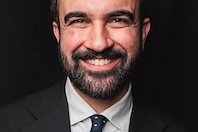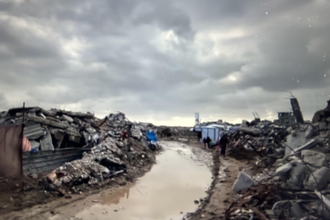Seminar discusses discrimination against Christians in EU

Yesterday, a seminar was held in the European Parliament to discuss the growing problem of discrimination against Christians in the EU. Several high-level speakers from different countries participated in the event organised by the European Parliament, the Commission of the Bishops' Conferences of the European Community (COMECE), and the ECR Group. Speakers agreed that significant efforts are required to eliminate discriminatory actions against Christians and that freedom of religion has to be ensured not only for minorities, but for Christians as well. Public attention must be raised to issues which are not covered by the media and a permanent dialogue should be established on major issues. Likewise, cross-party initiatives must also play a stronger role in this process.
In his speech, Jan Olbrycht MEP, Vice-Chairman of the EPP Group responsible for Inter-cultural Relations, said: "Any kind of discrimination is unacceptable. Discriminatory actions go against the very foundations of the European Union. There are several worrying discriminatory developments against Christians throughout Europe, against which we shall step up jointly and decisively. Furthermore, we should examine how these cases could help us, as some of these major violations could help increase public awareness and intensify efforts against discrimination of Christians who are feeling more and more like a minority in Europe."
In his speech, Konrad Szymanski MEP (ECR Group) said: "In Europe, we eagerly speak about human rights, equality of rights, non-discrimination principles towards the entire world. It is good that we feel this kind of a call for the protection of human dignity. However it does not mean that our own liberal democracy cannot evolve into a discriminative system or a system which tolerates discrimination. More and more Christians feel discriminated against. The presence of the Cross and Christianity itself are being undermined. In certain countries, the protection of sexual minorities' rights causes limitations of criticism and freedom of speech. Freedom of conscience, particularly within the medical professions, is being undermined as well."
Session one saw interventions by John Deighan who emphasised the specific situation in the UK, mainly discrimination against Catholic adoption agencies, wearing Christian religious symbols in public (e.g. in the workplace) and an attempt to redefine marriage. Daniel Lipsic referred to the need for a more balanced and consistent approach by the European Court of Human Rights concerning the incitation of hate speech.
In session two, leading speeches were given by Francisco Javier Borrego who outlined the ideological interpretation of the European Convention of Human Rights in certain cases by the Strasbourg Court. Professor Rocco Buttiglione highlighted the gap between the active minorities who influence the decision making process and the silent majority of Christians who are afraid to take centre stage in the boiling of the political agenda. Other experts on the panel recalled the Resolution of the Parliamentary Assembly of the OSCE which identifies very specific areas in which the basic rights and civil rights of Christians must be protected. “A key issue is the protection of religiously motivated decisions of conscience” explained Mgr. Kolfhaus (Secretariat of State, Holy See). “Needless to say, the Church is against discrimination. But not all discrimination is discrimination: there is also a right to be different”.
In his remarks, Mgr Piotr Mazurkiewicz, Secretary General of COMECE, mentioned the recent positive outcomes protecting equality and religious freedom in the Council of Europe and the Luxembourg Court. Throughout the seminar, there was a shared consensus that the European Parliament and the other European Institutions should take heed of the aforesaid issues and show the required political will in order to come up with practical solutions in this regard.
Source: COMEC
















